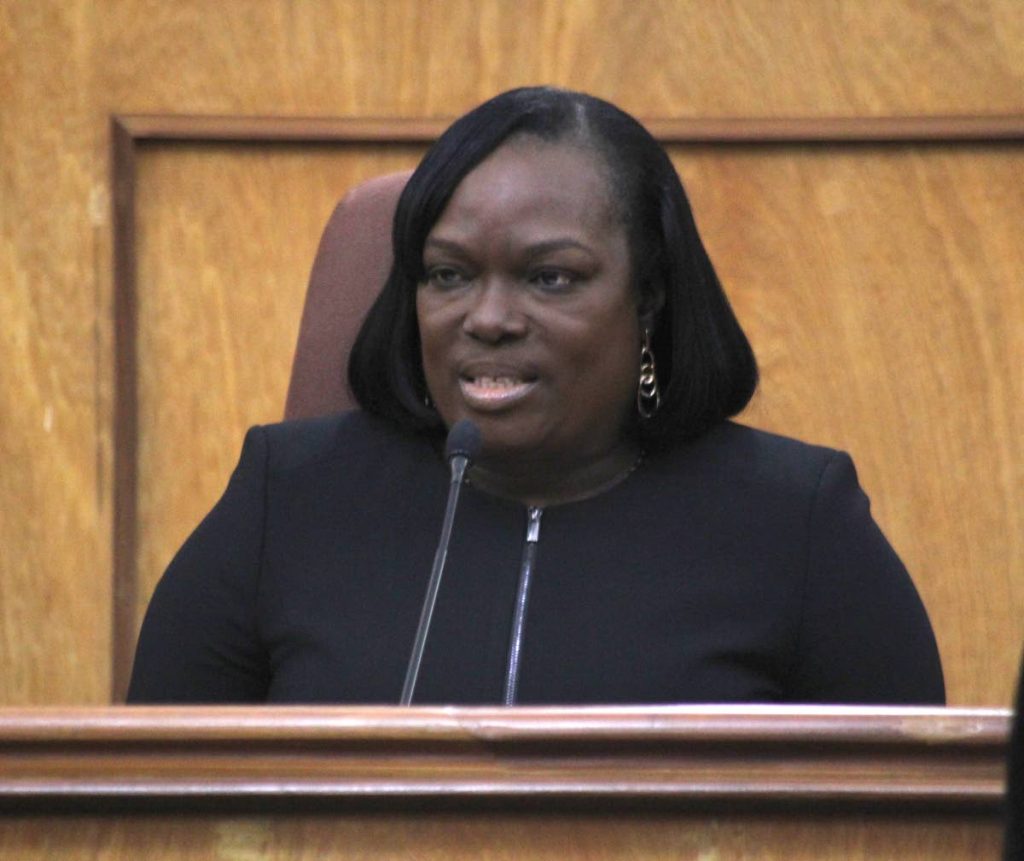Not enough money for justice

President of the Industrial Court Deborah Thomas-Felix yesterday said reduced funding for the court is hampering its objective of dispensing quality justice to its clients.
Speaking at a special sitting of the court yesterday to mark the start of the new law term, Thomas-Felix said for the 2018-2019 financial year, the Industrial Court requested $65 million to cover recurrent expenditure but only got $40 million, which she added, equates to 38 per cent less than the amount needed for the court to function optimally.
“The allocation of $40 million comprises of $26 million for salaries and $14 million for goods and services to operate the court which includes payment of security services and utilities. Further, to exacerbate an already difficult situation, the release of these funds has been inconsistent and inadequate,” she complained.
Thomas-Felix said said there were times when there was no release of funds for months at a time and this has been the case for the past few years. It is becoming increasingly difficult for the court to meet its financial and service obligations and to ensure the availability of basic supplies such as ink and paper.
“The reduction in the court’s budget and a lack of funds have impacted negatively the courts’ ability to deliver key initiatives including our flagship stakeholder event ‘Meet with the Court Symposium, the hearing of disputes in Tobago, which has assisted in alleviating the expense and inconvenience for access to justice for Tobagonians.”
Thomas-Felix said a shortage of court reporters continues to plague the Industrial Court and to date there are 20 vacancies for Verbatim Reporter One positions out of a total pool of 22. She said the court has attempted to meet this huge shortfall by engaging the services of retired reporters, but financial constraints limit the number of people the court can contract.
Thomas-Felix said there have been 1,410 new cases filed for the period September 2018 to September 2019. She said of the total matters filed at the court this year, Trade Disputes remain the largest number while Retrenchment and Severance Benefits and Occupational Safety and Health follow closely behind. “There are 237 more cases than those filed for the same period in 2017/2018 which recorded 1,173 cases.
Thomas-Felix said this year, a total of 399 judgements were reserved for decision by the court. She said of these reserved judgements, 214 remain outstanding because notes cannot be prepared and given to judges for their decisions. “The backlog which was cleared in 2014 has returned.”
In response, Attorney General Faris Al-Rawi - who was present at the special sitting - said there was not a cut in finances, because what someone requests will not be what they eventually get.
“You have to remember a revenue comes about every year in a budget and it is an estimate. It is an estimate of expenditure and an estimate of revenue. Oil and gas figures have not been what they were estimated at which means that the oil and gas income have been a problem which mean issuing payments have been a problem,” Al-Rawi said.
Al Rawi said while there is a shortfall of vacant Verbatim Reporter One, in the judiciary, a different form of transcriptionist is being used and that CJ Ivor Archie has agreed to share the platform with the Industrial Court.

Comments
"Not enough money for justice"